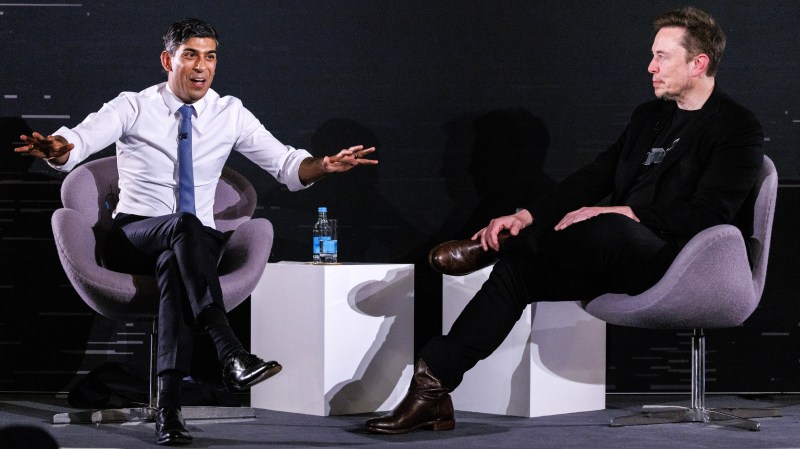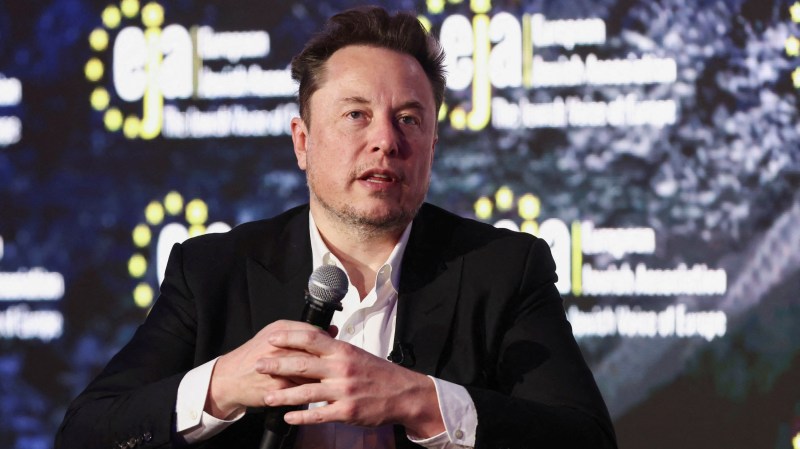Apple has no more markets left to conquer
Apple is one of the world’s highest-quality businesses. Its smartphones are the most popular on the market and in the past decade it has grown into a leader in wearable technology, from the Apple Watch to AirPods. This has rewarded shareholders handsomely, with returns of more than 200 per cent in the past five years. But the nagging question remains at the back of investors’ minds: can Apple really keep growing at this rate?
The concern has stalked Apple for years, but a lawsuit filed by the US Department of Justice last week could mark an inflection point. It alleges that Apple has reached its “astronomical valuation” of $2.6 trillion more by “making it harder or more expensive for its users and developers to leave, than by making it more attractive for them to stay”.
Apple denies this, but it is its so-called walled garden that investors love so much. This is the idea that customers are more inclined to buy more Apple devices and services if they already own one, because they can integrate more easily with each other than rival products. Access to this Apple ecosystem is expensive: Google is said to pay somewhere between $18 billion and $20 billion a year to be the default search engine on the iPhone. If the walled garden is broken open, it could seriously affect Apple’s earnings.
It is not just in the United States where regulators are circling. In Europe, Apple (as well as Google and Meta) could face fines of up to a tenth of its global revenue if it is found not to be complying with digital competition rules.
Apple’s business in China, the market once hailed as its growth engine, is also slowing. Tim Cook, the group’s chief executive, was on a charm offensive last week, opening a new store in Shanghai, attending Beijing’s business development forum and holding an “outstanding” meeting with Li Qiang, the Chinese premier, the country’s second highest-ranking official. But Cook cannot get around the simple fact that China’s consumer economy is faltering: iPhone shipments to the country fell by about a third in February compared with a year earlier, according to official data.
Apple’s future depends on how rapidly it can find the next product to revolutionise consumer technology and whether it will fall foul of regulators. The company spent $29 billion on research and development last year, but not everything comes off. It recently abandoned “Project Titan”, an expensive attempt at building a self-driving electric car. Its new virtual reality headset was warmly received by critics, but at $3,499 it is far from being a mass-market product. The company’s services division, which makes up about a fifth of its top line, covers television, music streaming, cloud storage, gaming, payments and advertising. There are not that many markets left to win.
There is no denying that Apple is extremely well run — few businesses can boast a net income of $96 billion on a gross margin of 44 per cent — but regulation is turning a corner and could make a serious dent in its earnings. Apple has an enterprise value that requires about $800 of annual spending for every person in the world, according to an analysis by UBS, the investment bank, and there are estimated to be only 1.2 billion people with an income above $12,000 a year. This is starting to slowly trickle down into market views, with a third of analysts who cover the stock now rating it as a “hold”, compared with less than 20 per cent a year ago.
Apple’s shares trade at a forward price-to-earnings multiple of 26, at the lower end of the “Magnificent Seven” group of leading technology stocks (the others being Microsoft, Nvidia, Amazon, Alphabet, Meta and Tesla) as investors adjust their expectations for growth. There is still decent progress in Apple’s services division and margins have improved significantly since it developed its own silicon chip, but without a clearer view on what will drive the long-term growth of this multitrillion-dollar company, investors should proceed with some caution.
Advice Hold
Why This is a high-quality business with sticky customers and expanding services, but the path to long-term growth looks unclear compared with its Magnificent Seven peers and regulators are circling on both sides of the Atlantic
Softcat
Softcat seems to have wriggled out of its tight spot. Six months ago it warned that some of its clients were growing more cautious about their information technology spending; turn the clock forward to today and it has reported its best operating profit on record in the first half of the year, rising by 5.8 per cent to £66.7 million.
The IT reseller’s top line did drop by 8 per cent to £467 million, but this was mostly because of a decline in its lower-margin hardware sales business. The underlying figures looked healthy, with growth in all its core divisions and total customer numbers nudging up by 1 per cent. The company is squeezing more profit out of its client base, too, with gross profit per customer rising by 9.6 per cent to £38,900.
Together, this meant that overall earnings per share grew by 2.4 per cent in the six months to the end of January. In a further sign of confidence, it declared an interim dividend of 8.5p, compared with 8p at the same point last year.
Most technology businesses are stuffing their updates with promises of artificial intelligence-powered growth, but Softcat is among the few listed in London that could benefit directly from an AI boom. It is one of two of Microsoft’s largest partners in Britain, according to Graham Charlton, its chief executive. He estimates that more than 90 per cent of customers have already been in contact about generative AI tools, with somewhere between 10 per cent and 20 per cent starting a trial. While investors should not expect a sudden explosion of profits here, it looks like it could be a gradual source of growth.
Overall, therefore, this was an encouraging set of figures, with investors rejoicing that demand is not as soft as they feared it might be. The shares rose by as much as 8 per cent, giving a ratio of forward enterprise value to pre-tax earnings of 17.7, compared with Bytes Technology Group, its rival IT reseller, at 19.5. This is not particularly cheap, but with improved demand and incoming Microsoft Windows update cycles, Softcat looks like it is in for a good year.
Advice Buy
Why Signs of improving IT demand






